The Rebellion
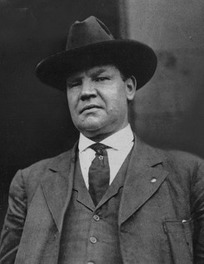 Big Bill Haywood
Big Bill Haywood
The Industrial Workers of the World was a labor union that began in 1905 in Chicago and was led by William "Big Bill" Haywood. The members of the Industrial Workers of the World became known as the Wobblies. The Wobblies did not like the American Federation of Labor. They felt that it discriminated against the poor and unskilled workers. So, the Wobblies welcomed all types of workers to be members. The I.W.W. did not like capitalism. They felt it was simply a way to help the rich become richer and to keep the poor down. They wanted to do away with capitalism and adopt socialism. Socialism is a type of economy where major industries are owned and controlled by the government rather than by individual people and companies. It is the opposite of capitalism. In capitalism, individuals and companies own the major industries and government is not involved at all.
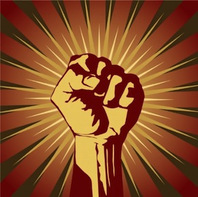 A fist is the symbol for anarchy.
A fist is the symbol for anarchy.
The I.W.W. had one major goal. It was to join all workers into one big union. Wobblies would travel all over to help fellow Wobblies in strikes and pickets. They promoted unity in the union by writing songs and poetry together but they were far from peaceful. They were willing to do just about anything to gain members and to have their demands met. They used violent and aggressive tactics. Many people view them as anarchists. An anarchist is a person who rebels against the government. They used violent strikes, riots, and sabotage to coerce business owners into meeting their demands. They thought that collective bargaining, negotiation, and lobbying were useless.
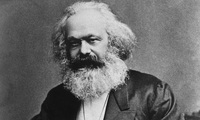 Karl Marx
Karl Marx
Many of their beliefs were based upon the ideas of Karl Marx, the founder of communism. Wobblies felt that workers and bosses had nothing in common and that a struggle would continue between the two groups until the workers formed one big union and took control of businesses and industries. They wanted to throw out the wage system and pay everyone the same wages.
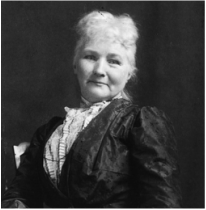 Mother Jones
Mother Jones
One well known member of the I.W.W. was Mary Harris Jones. She was called Mother Jones and she was quite a pistol! She was an Irish immigrant and school teacher who organized and participated in many of the major strikes at the turn of the century. She earned the nickname "Mother" while helping coal miners gain better working conditions. She organized the Children's Crusade to try to end the mistreatment of children workers. She gave speeches and wrote books about how industries enslaved their workers. She participated in demonstrations against capitalism. She was even arrested in her eighties for participating in a violent strike but was pardoned and released after serving 85 days.
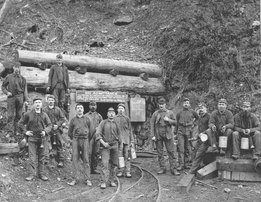
The IWW appealed chiefly to migrant and immigrant workers in the lumber, mining, and agricultural industries. The I.W.W. was mostly active in the Western United States. Because the West was not as populated as the Eastern U.S, it was harder for law officers to enforce the law. Often violence and vigilante law were used to maintain order in the West. The I.W.W. was able to get away with much more in the West than they would have in the East. Industries and businesses that became targets of the I.W.W. often had to react violently to defend themselves.
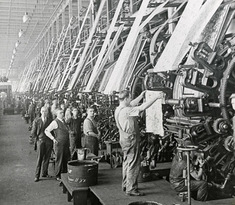 Textile mill in Lawrence, Massachusetts
Textile mill in Lawrence, Massachusetts
Not all members of the I.W.W. were violent anarchists but business owners used the public's perceptions about Wobblies against those who were not violent. In 1911, a law was passed in Massachusetts that women and children could work no more than fifty-four hours a week. Business owners decided to make a minimum amount that women and children had to produce to get their full wages. If they did not make that minimum amount their pay was docked. Many workers walked off the job and began to strike. The Mayor of Lawrence, Massachusetts sent militia to provoke the strikers to violence, but the strikers remained peaceful.
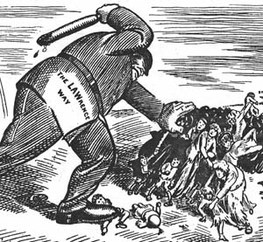
People all over the country began reading about Lawrence. Most hadn't known about conditions in the mills. Some offered to care for strikers' children. On the forty-third day of the strike, forty children and their parents were gathered at the train station . The children had been invited to Philadelphia, where families had arranged to "adopt" them until the strike was over. Suddenly police appeared. The Boston Common reported it this way: "Police, acting under orders of the city marshal, choked and knocked down the innocent wives and babies of the strikers." That was too much. President Taft ordered an investigation of industrial conditions. The mill owners agreed to raise wages, pay overtime, and rehire the strikers.
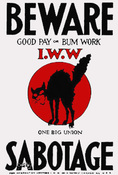
Unfortunately, the I.W.W. had gained such a reputation for violence that many were not sympathetic about the situation in Lawrence. In fact, the I.W.W. was so aggressive that several states charged the union with crimes and arrested violent members. In 1918, the federal government sent some of the top leaders of the I.W.W. to prison for publicly criticizing the American government for entering World War I and refusing to help in the war effort. At it's height, the I.W.W. had about 60,000 members. By 1920, the union had lost almost all of its members. The union still exists today but only has 900 members worldwide.